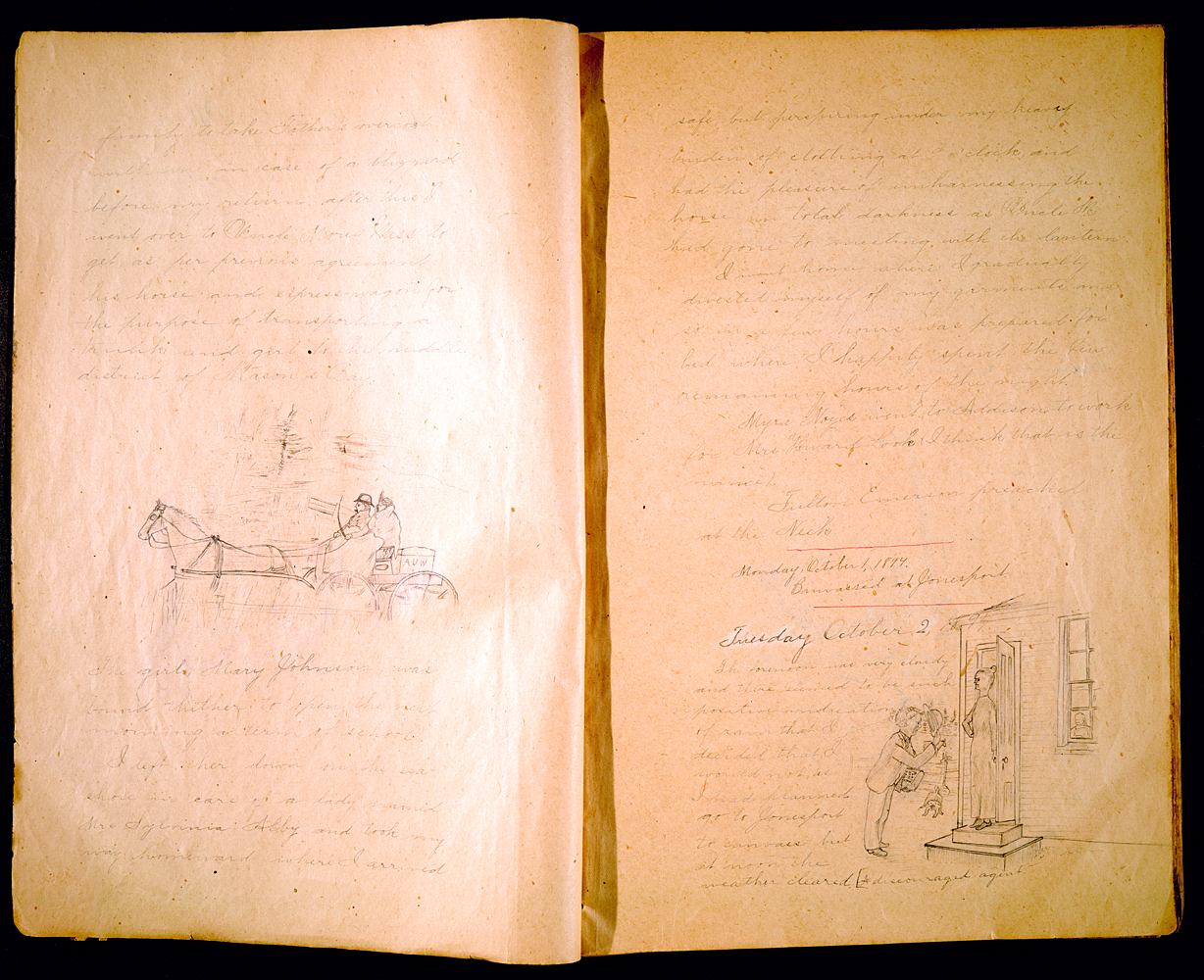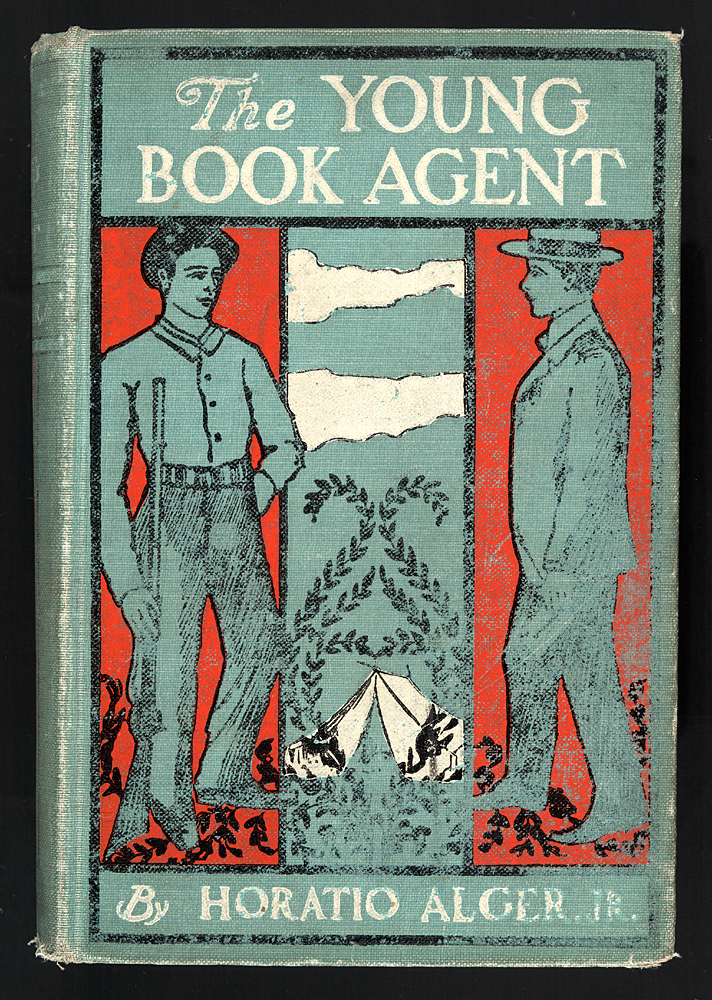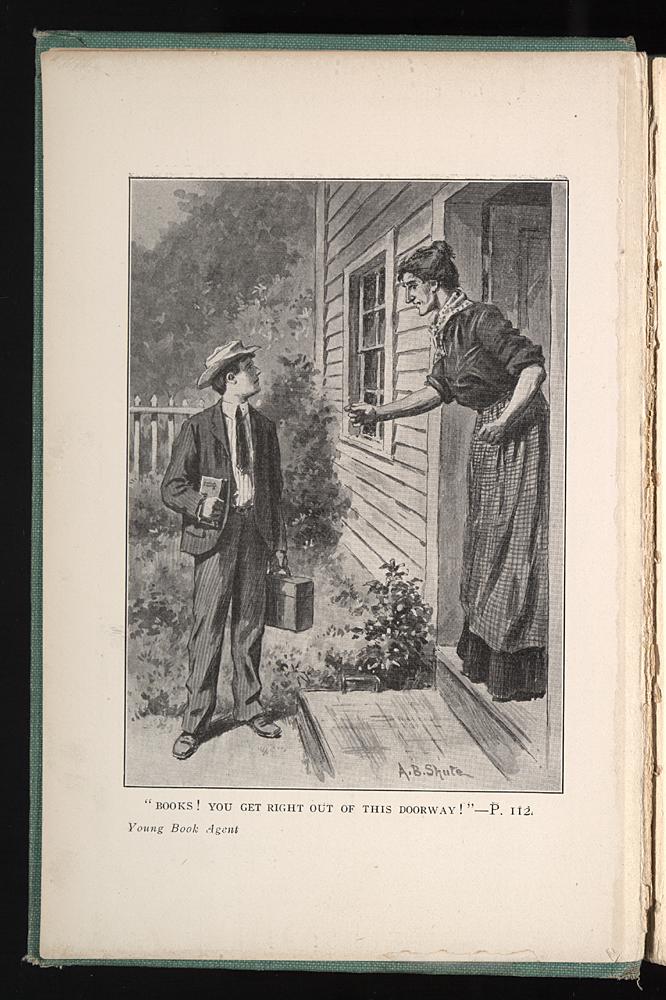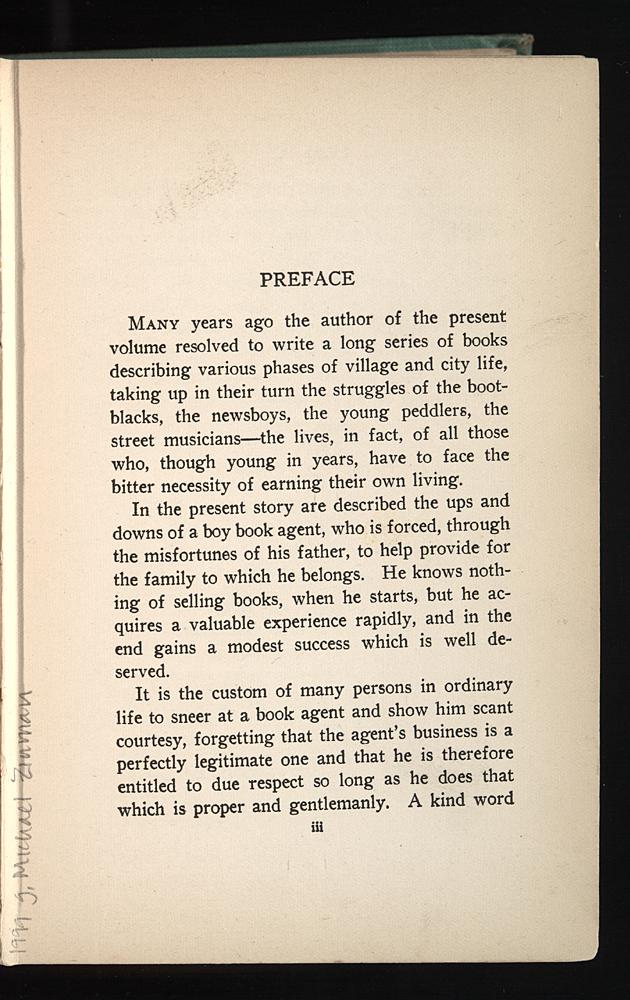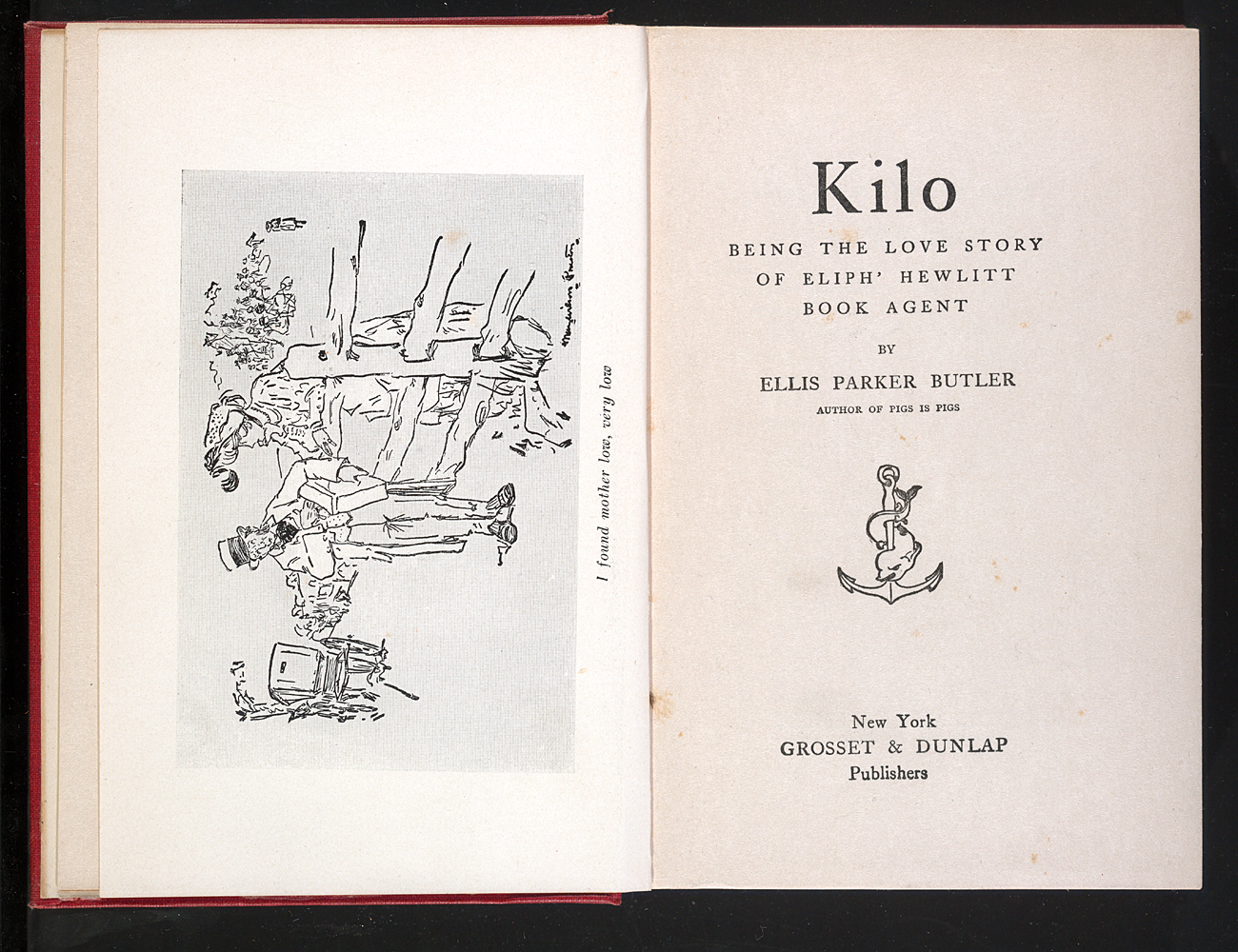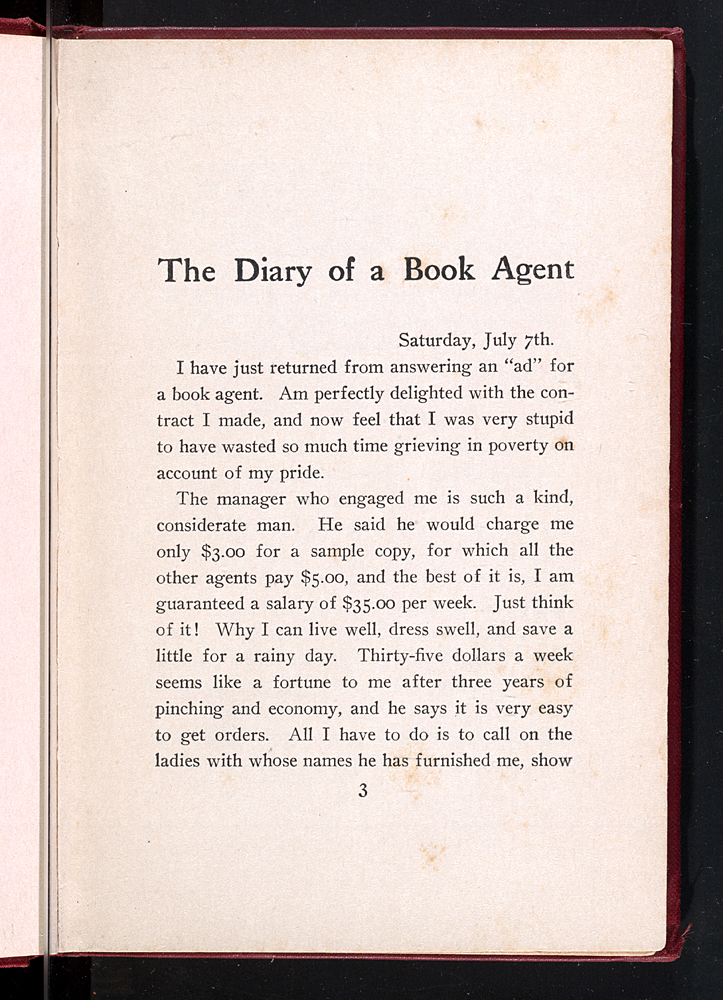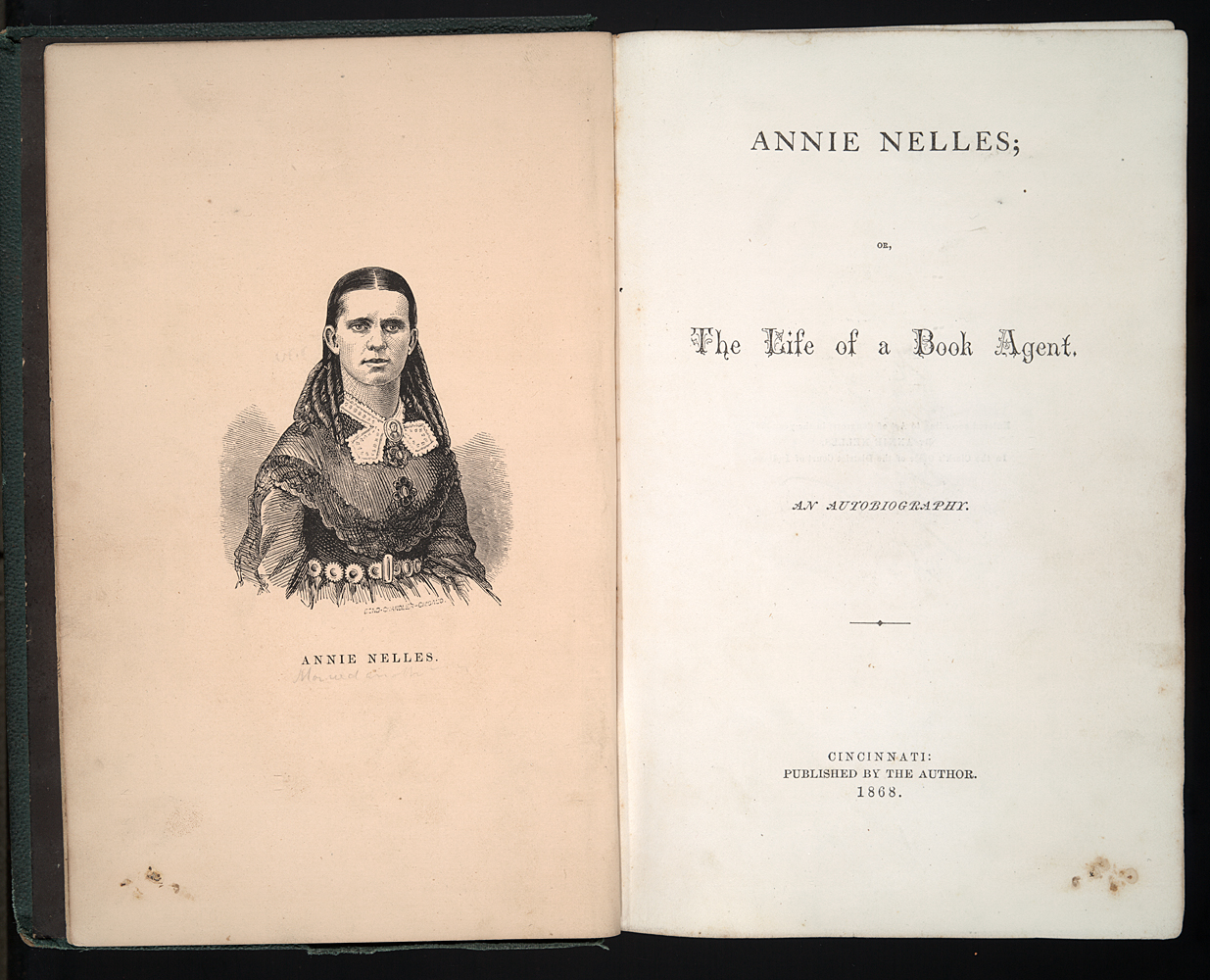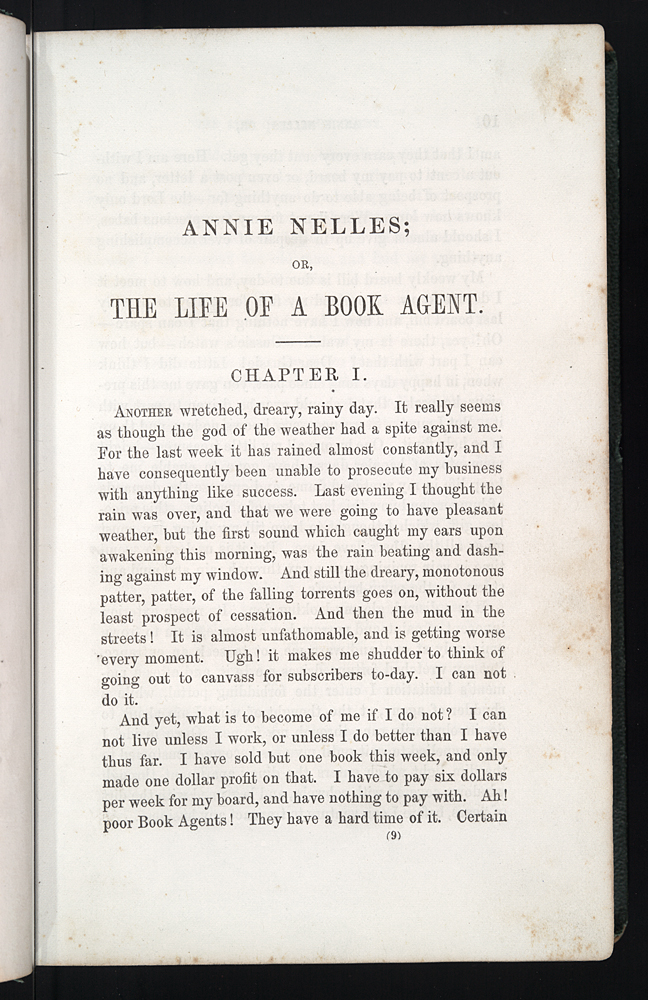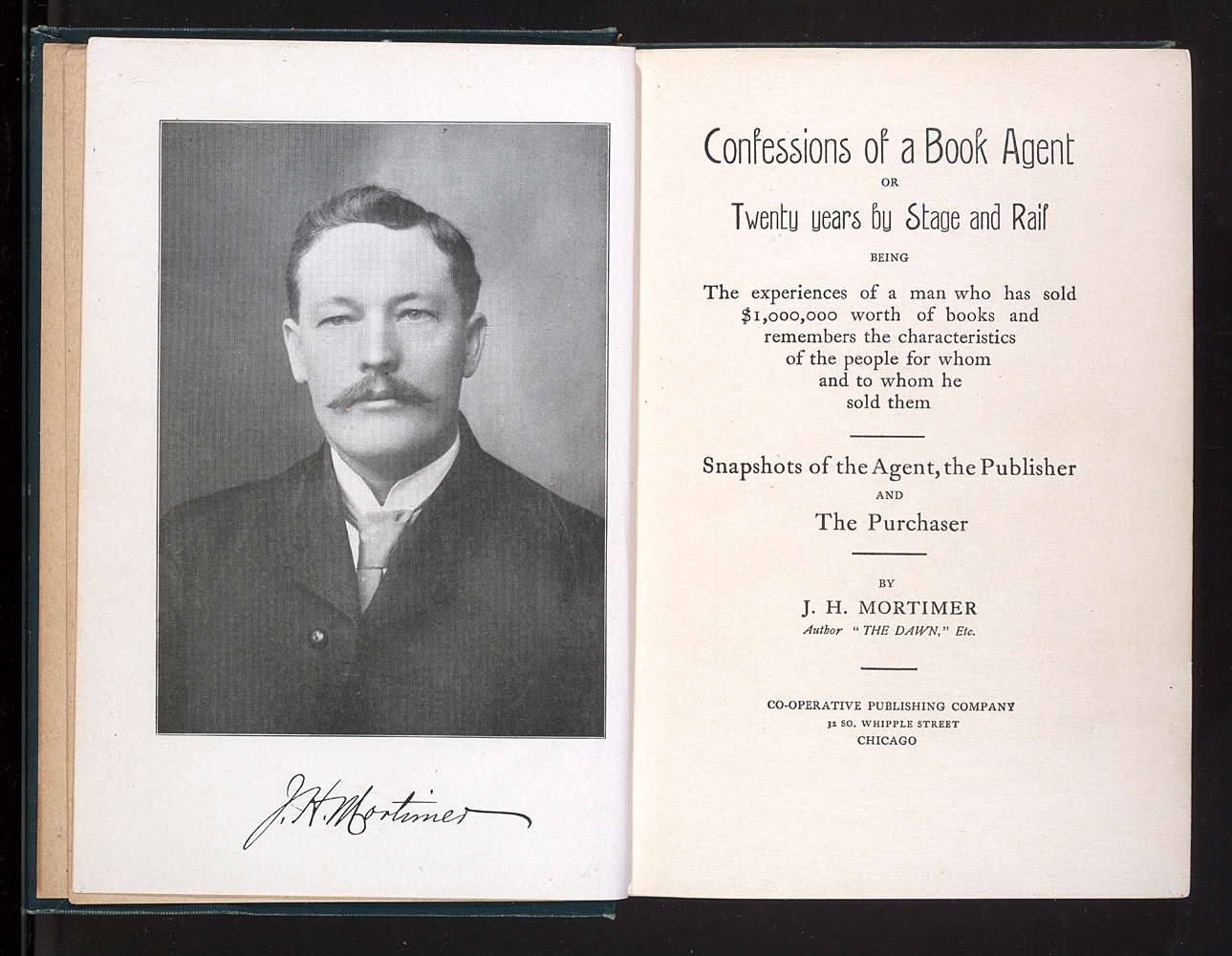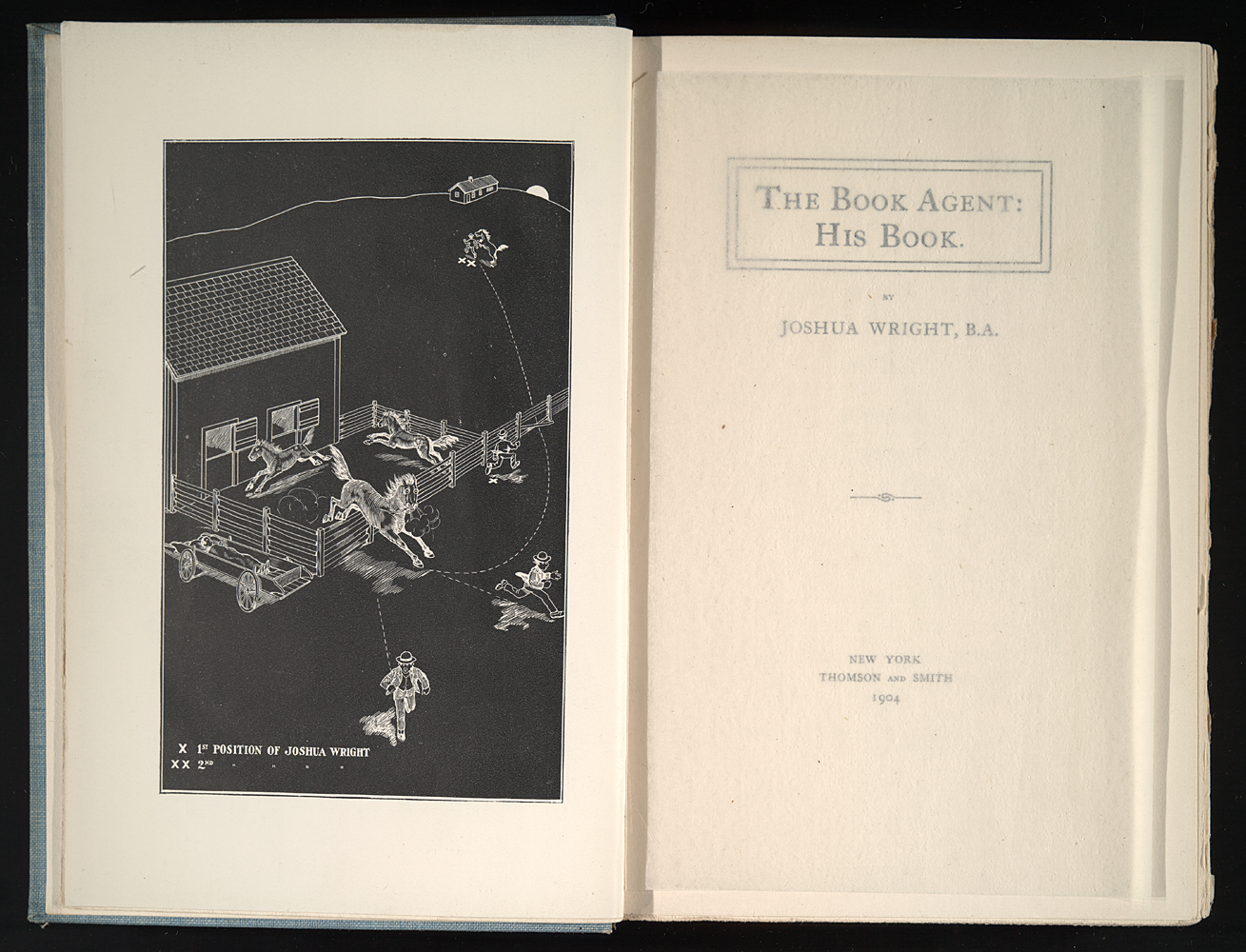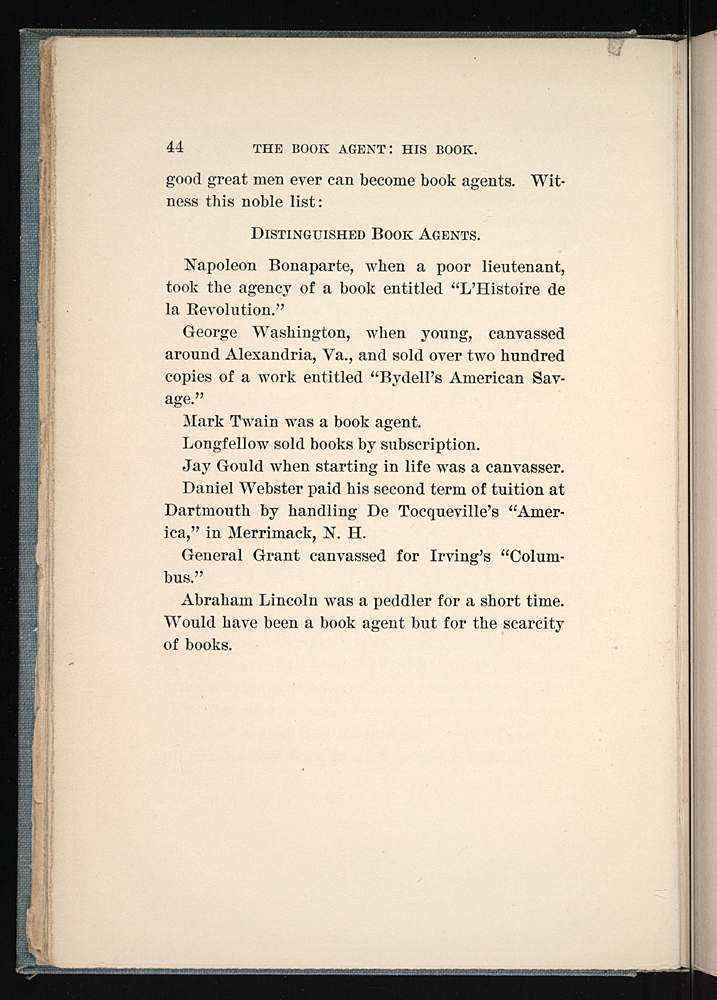Most people found lives as book agents to be nasty, brutal, and short: the field was not one at which many people kept plugging away for many years. However, an exceptional few found their natural talents to lie in this direction and were able to become extremely successful at canvassing. Both types of agents wrote about their experiences in diaries, memoirs, autobiographies, and even fictional accounts. So did such writers as Horatio Alger and Ellis Parker Butler, who had never been book agents themselves. Sometimes, too--and in all genres--the line between fact and fiction was not clearly drawn.
Fig. 1:
Frank Kelley kept this manuscript diary, with numerous illustrations, documenting his experiences canvassing in Maine during one week in 1894. A couple of days of rainy weather at the end of the week provided Kelley with the time to make this book--which he did using wrapping paper--and to begin writing his diary. He titles his drawing of himself trying to sell a copy of his book, Plain Home Talk, to a stern-faced woman standing in her doorway, "A discouraged agent." It is remarkably similar to the frontispiece to Alger's novel, The Young Book Agent, published a decade later. Kelley recounts the events of that day:
"The forenoon was very cloudy and there seemed to be such positive indication of rain that I decided that I would not, as I had planned[,] go to Jonesport to canvass, but at noon the weather cleared so, that the day might not be wholly lost, I decided to canvass the people at the Basin and with what luck may be guessed by the illustration on the preceding page I was unable to secure a single subscriber either at the Basin or on Crowley's island which I canvassed after doing the Basin."
Fig. 2 - Fig. 4:
In the preface to this novel, published in 1905--when attitudes to book agents had clearly changed--the author reminds his readers that while "[i]t is the custom of many persons in ordinary life to sneer at a book agent and show him scant courtesy, forgetting that the agent's business is a perfectly legitimate one and that he is therefore entitled to due respect so long as he does that which is proper and gentlemanly." The hero, Frank Hardy, is from the Philadelphia area, and it is in Philadelphia that part of the story is set. The book chronicles the typical "Horatio Alger"-like rise to success of plucky young working boys. While its title page attributes the work to Horatio Alger, Jr., The Young Book Agent was actually written by Edward Stratemeyer, one of eleven titles completed by his syndicate after Alger's death. Stratemeyer would later recycle the hero's name--Frank Hardy--and his physical characteristics--"a tall, good-natured looking boy of sixteen, with dark eyes and dark, curly hair"--in the Hardy Boys series, which he and his syndicate began producing in 1927.
Fig 5:
The hero of this humorous and entertaining novel, Eliph' Hewlitt, is a travelling book agent seeking love while he sells Jarby's Encylopedia of Knowledge and Compendium of Literature, Science and Art, Comprising Useful Information on One Thousand and One Subjects, Including A History of The World, the Lives of All Famous Men, Quotations From The World's Great Authors, One Thousand and One Recipes, Et Cetera. The one book every household should own, it is "an entire library in one book, arranged and indexed by the greatest minds of the nineteenth and twentieth centuries. One dollar down and one dollar a month until paid." Eliph's spiel sounds very much like those found in publishers' "how to sell" brochures, including even references to the content of specific pages. Contemplating making love to a young woman he has met, Eliph' continues to use the language of canvassing as he meditates upon his situation:
"Lovely, but she will not suit. She is an encyclopedia of knowledge and compendium of literature, science and art, but she is not the edition I can afford. She is gilt-edged and morocco bound, and an ornament to any parlor, but I can't afford her. My style is cloth, good substantial cloth, one dollar down and one dollar a month until paid. As I might say."
In fact, he cannot do anything without making a sales pitch for the book.
Fig. 6 - Fig. 7:
This anecdotal, autobiographical work records the daily ups and downs book agents faced as they attempted to do their job. For every single highly successful book agent, dozens more failed. Of these, many, like Lindley, quit worse off financially than when they had begun, having spent whatever funds they had on room, board, and travel, not to mention the very outfit they were canvassing.
Fig. 8:
This early autobiography of a female book agent--of which there were many over the years--was first published in 1868 and reprinted many times in the years that followed. Dumond reflects upon her difficult life as a book agent, recalling, for example, an occasion when she had to pawn all her possessions in order to pay for room and board while canvassing for elusive subscribers. It is not clear whether this is a true autobiography, or rather Nelles's fictional account of her life, written to serve as an example to other young women. Some of her other fictional works, including those which appeared around the same time as this "autobiography," concern temperance and salvation.
Fig. 9:
Mortimer represents this as the work of Captain Durand, who, we are told, "will tell of his experiences in the book business, in his own way, I merely being the editor." This declaration mirrors that in the author's previous book, The Dawn, also autobiographical in form, which was taken by the public to be Mortimer's own story. He vehemently denied that he was telling his own story in such works, but--as is also true of other book agents' autobiographies--the relationship between autobiography and fiction in Mortimer's work is ultimately unclear. Mortimer's own face, not that of Captain Durand, shows up as the frontispiece, which may be a hint.
Fig. 10 - Fig. 11:
The Book Agent is a fiction that takes an autobiographical form for purposes of humorous satire. It presents its reader with "a series of literary etchings on the landscapes of humanity" by Joshua Wright, Book Agent. According to the "editor," Wright originally attempted, albeit unsuccessfully, to combine "the Functions of Author, Publisher, and Vendor in One Person"--a jibe at those book agents who tried to create their own monopolies in the business. Now he has bequeathed his memoirs to "whomever these presents may come." The frontispiece, shown here, illustrates the "extraordinary dream" of Joshua Wright, a dream, or rather nightmare, in which he is chased by a mad horse-- reminiscent of being chased by an irate subscriber.
